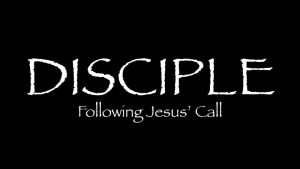
Sermon preached at St Mary and St John on the the Thirteenth Sunday after Trinity (10th September 2017) by Canon Robert Wright.
We have a small window between the Summer sermons Writing Home on the NT Letters of St Paul to the early Christian Communities and the seven Sunday sermons Phil will be preaching looking at the seven lamps of our parish community – Christ at our Heart through Worship, Prayer and Contemplation; Sharing the Good News of Jesus; Hospitality and Fellowship; Discipleship and Exploring Christianity; Care for Others and for Creation: Health and Healing; and Interfaith Dialogue and Proclamation.
Our readings today give us two helpful thoughts to reflect on. From the letter to the Romans we heard “put on the Lord Jesus” and from St Matthew’s Gospel ”where two or three are gathered in my name, I am there in the middle of them” – both probably quite familiar to us : “put on the Lord Jesus” and ”where two or three are gathered in my name, I am there in the middle of them.” This should be a real encouragement for us for Jesus is quite clearly promising us that he will be, he is, right in our midst, here among us today, now. Jesus’s reassurance about prayer at the end of this morning’s Gospel rests on the assertion that “I am in the midst of them ( us)”, taking us back to Jesus as Emmanuel ( God with us) in Chapter 1 of St Matthew’s gospel, through the great “I am” sayings that we find in St John’s Gospel, and looking ahead to the final words of St Matthew’s gospel, “I am with you to the end of time.” So, with some real confidence we should put on the Lord Jesus; we should seek to shape our lives on Him, we should confidently think of ourselves as his disciples.
What makes us a disciple is not turning up from time to time. Discipleship may be being a student in the strict Greek sense of the word, but it doesn’t mean turning up once a week for a course, or even a sermon. Discipleship is not an intermittent state; it’s a relationship that continues, it is about being consistently in the Lord’s company. And, as Rowan Williams points out, it is about expectancy, anticipation that the Lord is about to reveal more of Himself to us and this morning’s gospel reminds us that we should expect at least some of this to be revealed here, in our midst on the Cowley Road not just in Word and Sacrament but in each other. So as we look at each other we can ask ourselves what is Christ giving me through this person, through this group of people gathered today on the Cowley Road?
So this morning I would like to invite us to think what sort of disciple we wish to be? On the pewsheet I have put:
Lord Jesus, I want to be a ——- (what adjective would you put in here?)———- disciple.
And now will you talk about that with someone for a minute or two with someone else sitting near you. I will call us back together after a minute or two and ask if anyone is brave enough to share with us what adjective they have used for themselves and some of us may wish to discuss our words over coffee– it could be good, godly… whatever.
* * *
Thank you, that was very precious .I think my word would be faithful: Lord Jesus, I want to be a faithful disciple. And now to finish, the prayer that I have also put on the pewsheet which comes from the Methodist Covenant Renewal service. Beware, it’s dangerous! But you might like to take your pewsheet with you and use this prayer regularly as a preparation for our Autumn course on the seven lamps as we seek to put on the Lord Jesus in the confidence that the Risen Lord is here in the midst of us.
Lord, make me what you will. I put myself fully into your hands: put me to doing, put me to suffering, let me be employed for you, or laid aside for you, let me be full, let me be empty, let me have all things, let me have nothing. I freely and with a willing heart give it all to your pleasure and disposal.